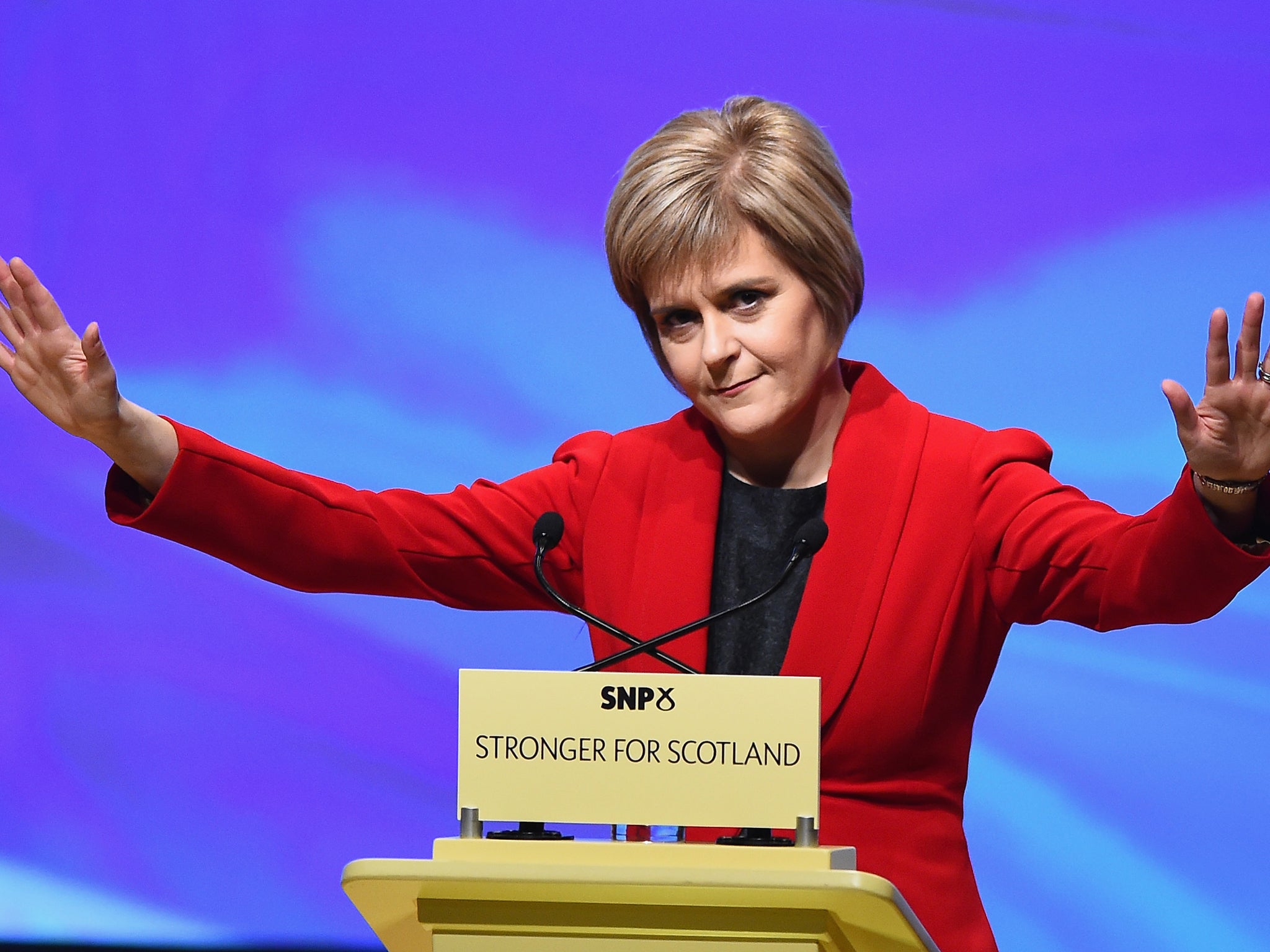The waiting game will work against the SNP
David Cameron did not call the SNP's bluff, hoping that its leader will overplay her hand


What has happened in Scotland, and will it ever stop? The Scottish National Party surge, which was unforeseen even by the SNP, had a dramatic effect on the general election. Not so much by winning seats in Scotland. That was a surprising event that tested the metaphors of seismology, but it did not affect the outcome that much. Even if Labour had held all its seats in Scotland, David Cameron’s majority would have been the same.
Instead, the SNP surge tilted the election by putting English and Welsh voters off Labour. The posters of Ed Miliband in Nicola Sturgeon’s and Alex Salmond’s pockets were often described as an attempt to persuade Ukip supporters back to the Tory fold. That puzzled me: you did not have to be a Ukip sympathiser to find the prospect of a Miliband government propped up by the SNP alarming, I thought. I was alarmed by it myself. So, it turned out, were a lot of other voters who would not dream of voting Ukip but who were undecided between Labour, Lib Dem and Conservative. They knew what the letters SNP stand for: by definition the party does not have the interests of English and Welsh voters at heart.
Thus Sturgeon, by making naive leftie hearts swoon with her talk of a common cause with Labour to “lock the Tories out of Downing Street”, managed to secure the very result she purported to oppose. Funny that.
For now, the post-referendum surge looks as if it will carry all before it until another referendum is finally won. But Sturgeon knows, because she is one of the best politicians operating in the UK at the moment, that the chess game ahead is fraught with danger for her and her party.
The most significant thing that happened last week, then, was that Cameron didn’t make a mistake. He went to Scotland to meet Sturgeon and both sides described the conversation as “constructive”. That is diplospeak for: “We disagreed about everything.” What was important, though, was that Cameron didn’t say: “You want full fiscal autonomy – you can have it. I look forward to your explaining to the Scottish people where you expect to find the £7bn a year that it will cost them.” That might have cheered up some of us who find the SNP’s cavalier attitude to the rules of arithmetic frustrating, but it would not have been a good idea.
The SNP has yet to come to terms with the fall in the oil price, which means that the economics of an independent Scotland are even more adverse than they were at the time of the referendum. I preferred the honesty of those nationalists during the referendum campaign who said, “Very well, then, poorer, but independent.” That was a decision that could not be denied them. What was hard to tolerate was the view that the figures produced by the SNP Scottish government were an English plot to rob them of their own money.
Hence the dishonesty of the SNP’s demand for fiscal autonomy – as if Scotland were independent – and yet to keep the subsidy that comes from being part of the UK.
Yet the Prime Minister did not call the SNP’s bluff, sticking to the pre-election deal to devolve further powers, and repeating the SNP’s pre-referendum view that another referendum was not “remotely on the cards”. I am told he feels responsible for the whole of the UK, which includes “protecting the people of Scotland from the craziness of the SNP, who are like Boris Johnson with cake: pro having it and pro eating it”.
Cameron hopes that Sturgeon, in her “search for grievances”, is beginning to overplay her hand. That at some point the Scottish people will realise that the SNP is in government in Scotland, and that even before further powers are devolved it has the power to raise income tax to deal with the “austerity” that it claims to care so much about.
The SNP tide may not start to recede until after the party has won another landslide in the Scottish Parliament elections next year. But Sturgeon must worry about being pushed too early into another referendum that might produce the same result. And there are reasons to think that the internal politics of the party are unstable.
Its 56-strong group of MPs will have little to do at Westminster for five years. Relations between Salmond, their “foreign affairs” spokesman (one of the driest Scottish jokes), and Sturgeon are bound to become difficult. Especially after a “top SNP source”, readily identifiable as Salmond, briefed the press last week that the party will go ahead and organise a second referendum whether the UK government legislates for it or not.
The SNP tide will stay high for some time, but as a non-resident Scot who wants to keep the Union, I am optimistic that there is a good chance it will recede before that second referendum can ever be held.
Join our commenting forum
Join thought-provoking conversations, follow other Independent readers and see their replies
Comments
Bookmark popover
Removed from bookmarks